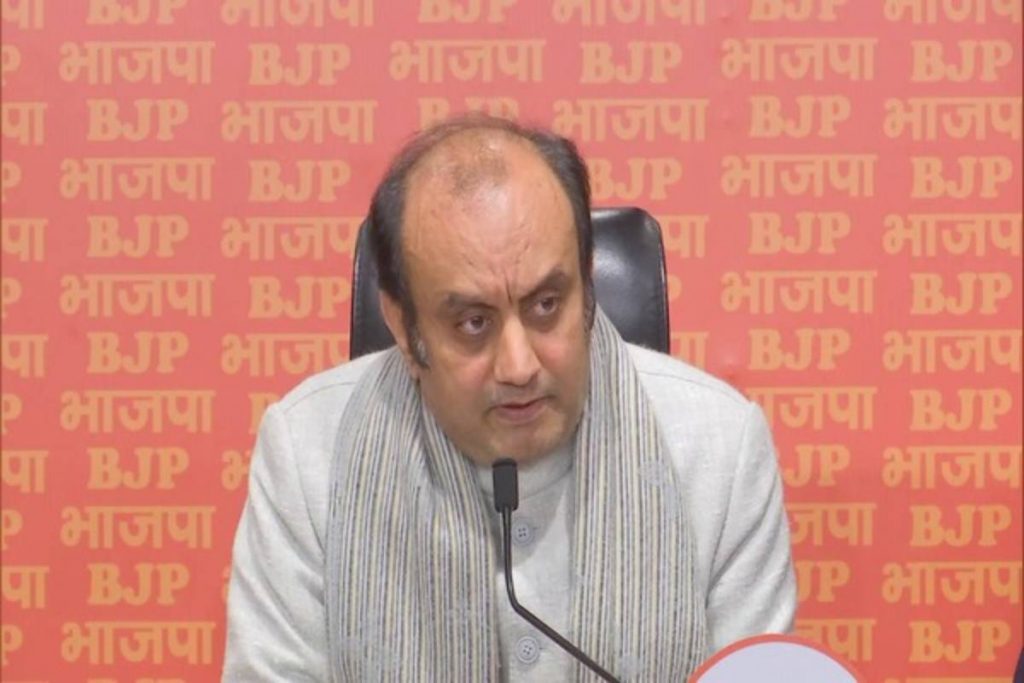A day after the central government led by the National Democratic Alliance (NDA) declared June 25 as ‘Samvidhan Hatya Diwas’ triggering criticism from the opposition, Bharatiya Janata Party (BJP) leader Sudhanshu Trivedi took a jibe at the latter asking if the agitation under the leadership of activist and leader Jayprakash Narayan anarchy.
On Friday, the central government declared June 25, the date on which an emergency was imposed under the then-Prime Minister Indira Gandhi-led Congress government, as ‘Samvidhan Hatya Diwas’.
“… I want to ask INDI bloc leaders, was the agitation under the leadership of Jaiprakash Narayan anarchy? I want to ask Lalu Prasad Yadav and Akhilesh Yadav, was his father Mulayam Singh a part of anarchy?…” Sudhanshu Trivedi said at a press conference here in Delhi.
The imposition of the emergency by then PM Indira Gandhi coincided with the JP movement, led by Jayprakash Narayan (also known as Lok Nayak). It was a political movement initiated by students in Bihar against misrule and corruption in the state government in 1974. The Prime Minister cited growing agitation and internal tensions as the reason behind the emergency.
Meanwhile, BJP leader Trivedi also criticised Indira Gandhi stating that was the only person who was convicted of electoral malpractices and electoral corruption by the Allahabad High Court.
“… In the history of India, Indira Gandhi was the only person who was convicted of electoral malpractices and electoral corruption by the Allahabad High Court. Her membership was cancelled. When she approached the SC, her membership was retained but she could not work as an MP. She could not contest elections for six years, could not participate in the proceedings of the Lok Sabha, and also could not vote. That is when she imposed an emergency… No court could now comment on or question the Prime Minister…” he said.
The Centre on Friday announced it would observe June 25 as “Constitution Murder Day” in remembrance of the 1975 Emergency. The decision has triggered a backlash with opposition parties targeting Prime Minister Narendra Modi’s government.
PM Modi referred to the 1975 Emergency as a “dark phase of Indian history” and announced that June 25 will be commemorated annually as Samvidhaan Hatya Diwas to honour those who suffered during that time.
In a post on X, he wrote, “To observe 25th June as #SamvidhaanHatyaDiwas will serve as a reminder of what happens when the Constitution of India was trampled over. It is also a day to pay homage to each and every person who suffered due to the excesses of the Emergency, as Congress unleashed a dark phase of Indian history”.
Union Home Minister Amit Shah said that the day would serve as a reminder of the significant sacrifices endured by those who faced the severe hardships of the 1975 Emergency, highlighting their immense contributions.
“On 25 June 1975, the then Prime Minister Indira Gandhi, showing her dictatorial mindset, strangled the soul of Indian democracy by imposing an emergency in the country. Lakhs of people were jailed without any reason and the voice of the media was suppressed. The Government of India has decided to celebrate 25 June every year as ‘Samvidhan Hatya Diwas’, Shah wrote in a post on X.
It has also triggered sharp reactions from the opposition.
Congress President Mallikarjun Kharge said in a post on ‘X’ on Friday, “In the last 10 years, your government has celebrated “Constitution Murder Day” every day. You have snatched away the self-respect of every poor and deprived section of the country every moment.”
Reacting to the Centre’s announcement, the ruling Trinamool Congress leader Kunal Ghosh said at a press conference that the BJP is trying to divert attention from its anti-people policy.
“She has been criticized. Indira Gandhi lost once and she came back to power as the Prime Minister. So that chapter was just one page of history and years later, the BJP is trying to divert attention from its anti-people policy, disasters and the bad condition of the country, they are trying to play this old card,” Ghosh said.
The Emergency of 1975 in India stands as a stark chapter in the nation’s history marked by widespread political turmoil and civil liberties suppression.
Declared by then-Prime Minister Indira Gandhi, the Emergency saw the suspension of fundamental rights and the imposition of strict censorship, aiming to quell political dissent and maintain order.
